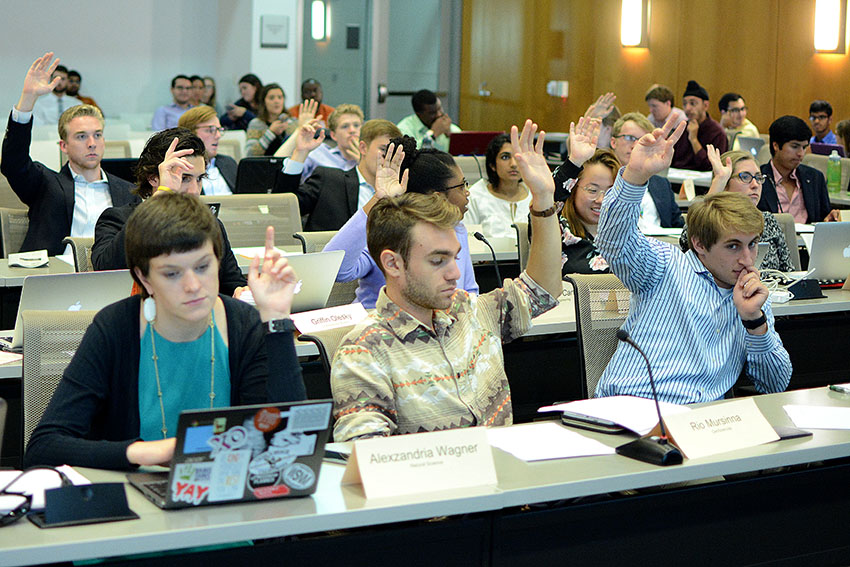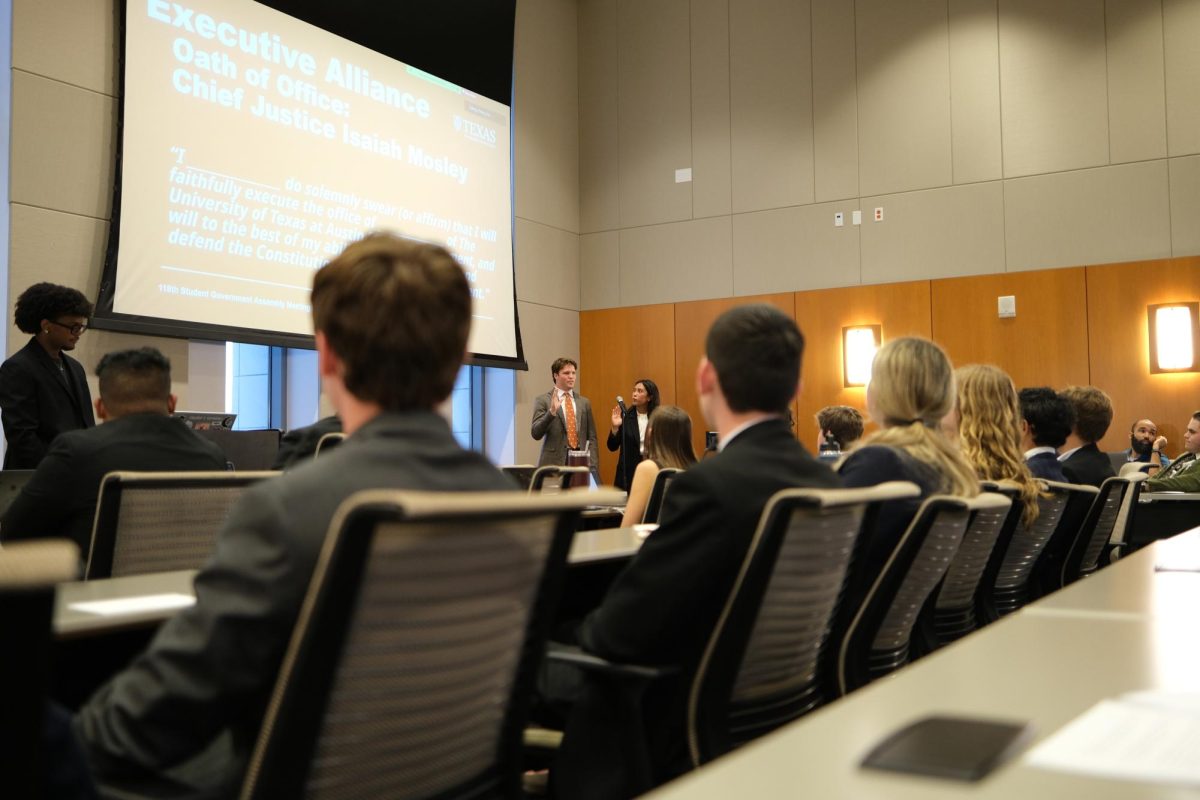While Student Government’s stated goal is to represent the student body, some of the resolutions they pass come from sources entirely outside the University.
SG considers legislation authored by a variety of sources, a practice some students say is misrepresentative of student opinions. One example is a resolution passed in September, which was partially written by lobbyist group Environment Texas, and called on UT System Chancellor William McRaven to cut emissions from oil and gas companies drilling on UT lands.
“I really don’t agree with it,” journalism sophomore Nicole Hix said. “It’s kind of like someone from a different country writing a bill for the U.S. government. It just doesn’t make sense.”
The SG constitution states students who participate with SG must be enrolled in the University but makes no mention of who can author resolutions for consideration by the assembly.
However, for a resolution to be brought before the assembly, it must be sponsored by at least one representative, said Santiago Rosales, SG speaker of the assembly.
Rosales said SG allows a wide range of authors in order to provide new insights when dealing with various resolutions.
“Sometimes the expertise on a particular issue may not always be within Student Government or even in the student body,” Rosales said. “I can see why it’s a little curious, but that being said, there has been other times that off-campus folks will write resolutions. Students will be involved with writing, but sometimes a person from off campus has a little more information or is more comfortable with explaining the rationale behind the legislation.”
After resolutions are authored and introduced to the assembly, an SG committee reviews it and fixes any problems with the resolution, Rosales said.
“There’s a pretty excessive conversation throughout from when the resolution is introduced to the moment it’s voted on,” Rosales said.
Government associate professor Zachary Elkins said he thinks SG’s process “seems strange,” but it reminds him of the various lobbyists in the U.S. government putting together legislation on
different issues.
“In the Texas Legislature, somebody can just fax in legislation and they’ll take a look at it,” Elkins said. “So there is a tradition in government of allowing outsiders into the process.”
Rosales said he has looked into the possibility of a rule change regarding the authoring of resolutions in order to make sure the student body is better represented by SG.
“I think there is a place for off-campus folks who are experts on particular subjects to speak,” Rosales said. “I think the best place for that is to create a testimony component to the legislative component to the legislative process [for] authors, who are hopefully students, and then open up an opportunity for, say, administrators to come in and give feedback. I think there’s a place for it, but I definitely do understand and do agree that it needs to be the students’ voice.”
Economics sophomore Hannah Blumenfeld said the system SG uses for resolution authoring should be revised.
“It shouldn’t be random people, it’s not fair,” Blumenfeld said. “They’re not students here. They don’t take these ridiculously hard classes and understand our problems that we want fixed.”














